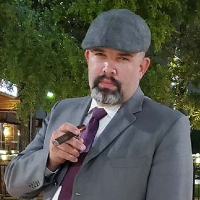Montague DUI-DWI Lawyer, Texas
Sponsored Law Firm
-
 x
x

Click For More Info:
-
Stephanie Alvarado Attorney at Law
100 N Central Expy Suite 805 Richardson, TX 75080» view mapCriminal Defense Law Fighting Against Unjust Prosecution
Attorney Stephanie Alvarado is there for her clients when help is needed right away. Helping people charged with crimes in Texas for over 20 years.
800-988-5471
Jason Van Dyke
Criminal, Juvenile Law, Expungement, DUI-DWI, White Collar Crime
Denton, TX Criminal Defense Attorney
Throughout a tenure exceeding sixteen years, Mr. Van Dyke has dedicated his legal prowess as the general counsel for factoring companies, commercial d... (more)
FREE CONSULTATION
CONTACTAndrea Lee Townsend
Family Law, White Collar Crime, DUI-DWI, Criminal
Status: In Good Standing Licensed: 21 Years
Brent Hill
Domestic Violence & Neglect, Family Law, Divorce & Family Law, DUI-DWI, Criminal
Status: In Good Standing
Brent Hill
Domestic Violence & Neglect, Family Law, DUI-DWI, Criminal
Status: In Good Standing Licensed: 26 Years
Bruce Isaacks
Domestic Violence & Neglect, DUI-DWI, Criminal, Consumer Protection
Status: In Good Standing Licensed: 42 Years
Christopher David Raesz
Civil Rights, DUI-DWI, Administrative Law, Federal Appellate Practice, Domestic Violence & Neglect
Status: In Good Standing Licensed: 33 Years
 Stephanie Alvarado Richardson, TX
Stephanie Alvarado Richardson, TX Practice AreasExpertise
Practice AreasExpertise

